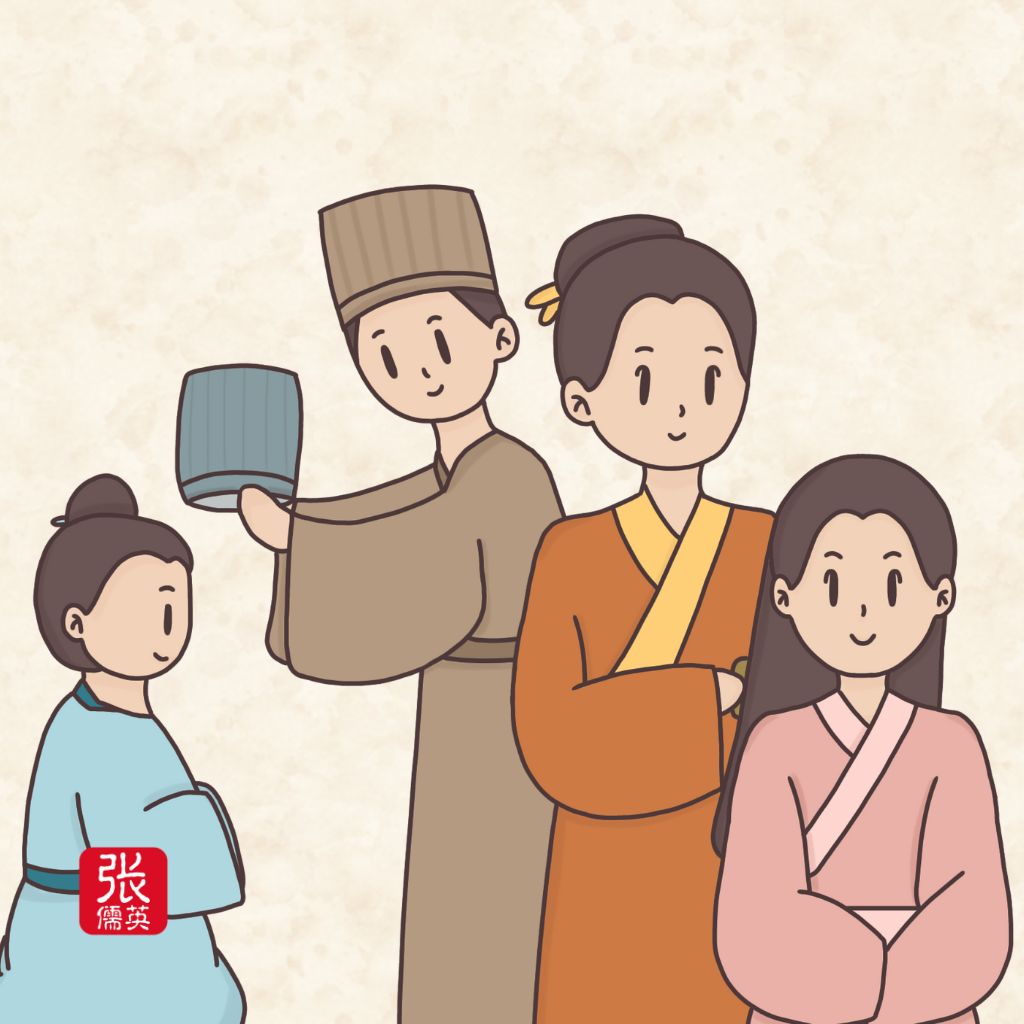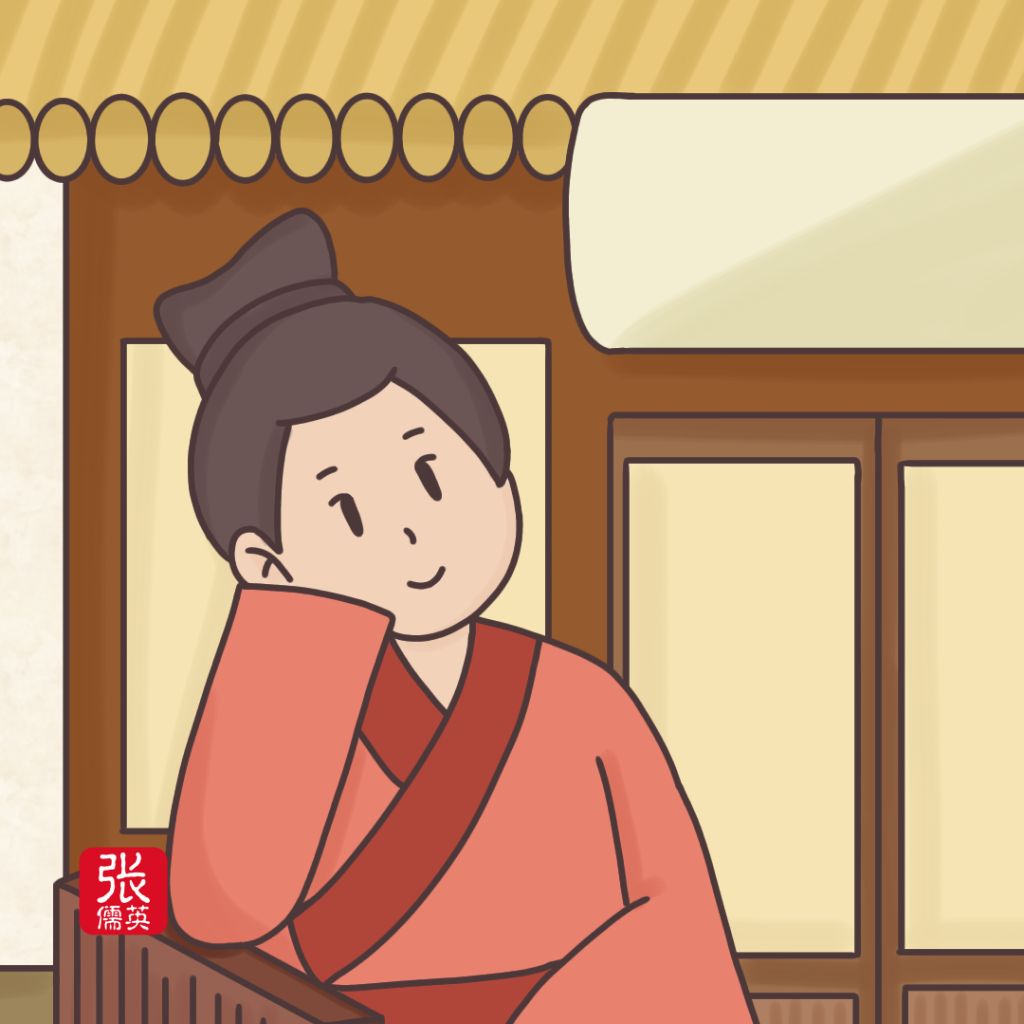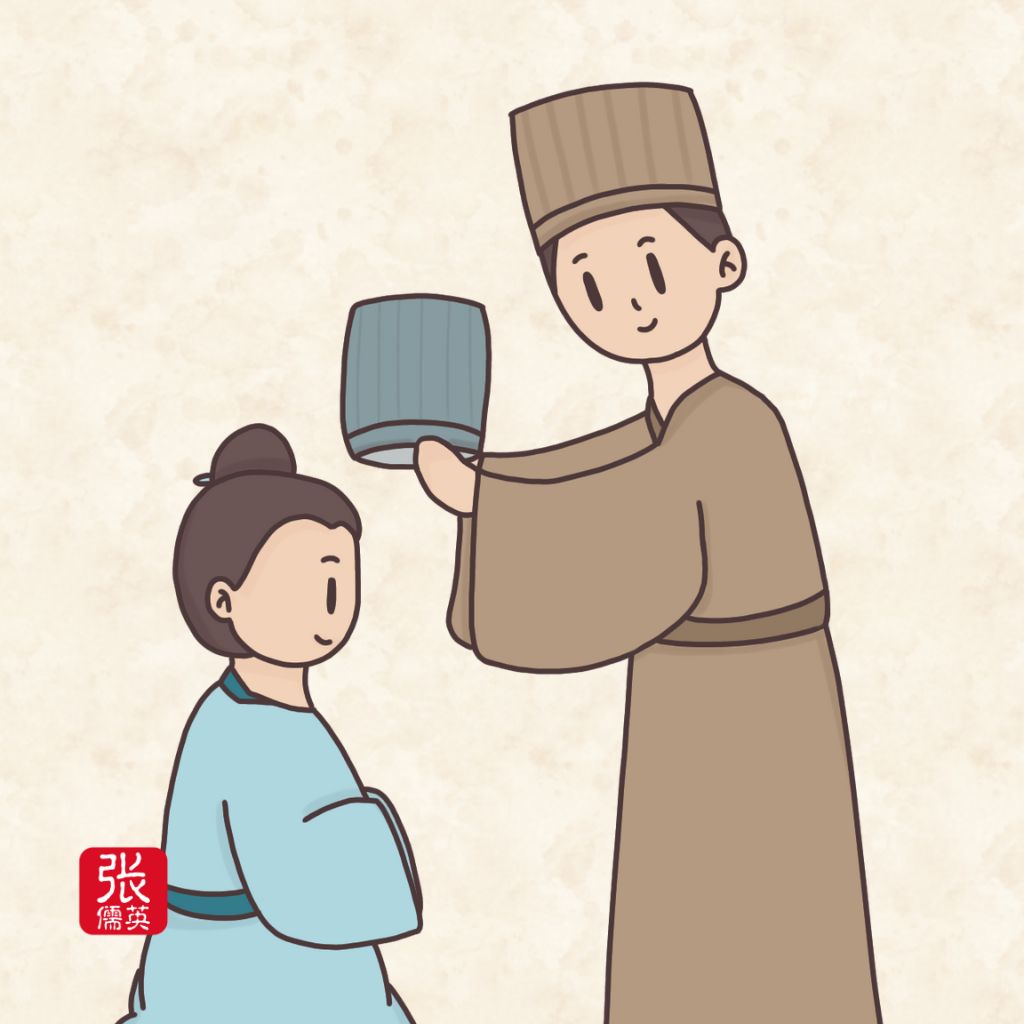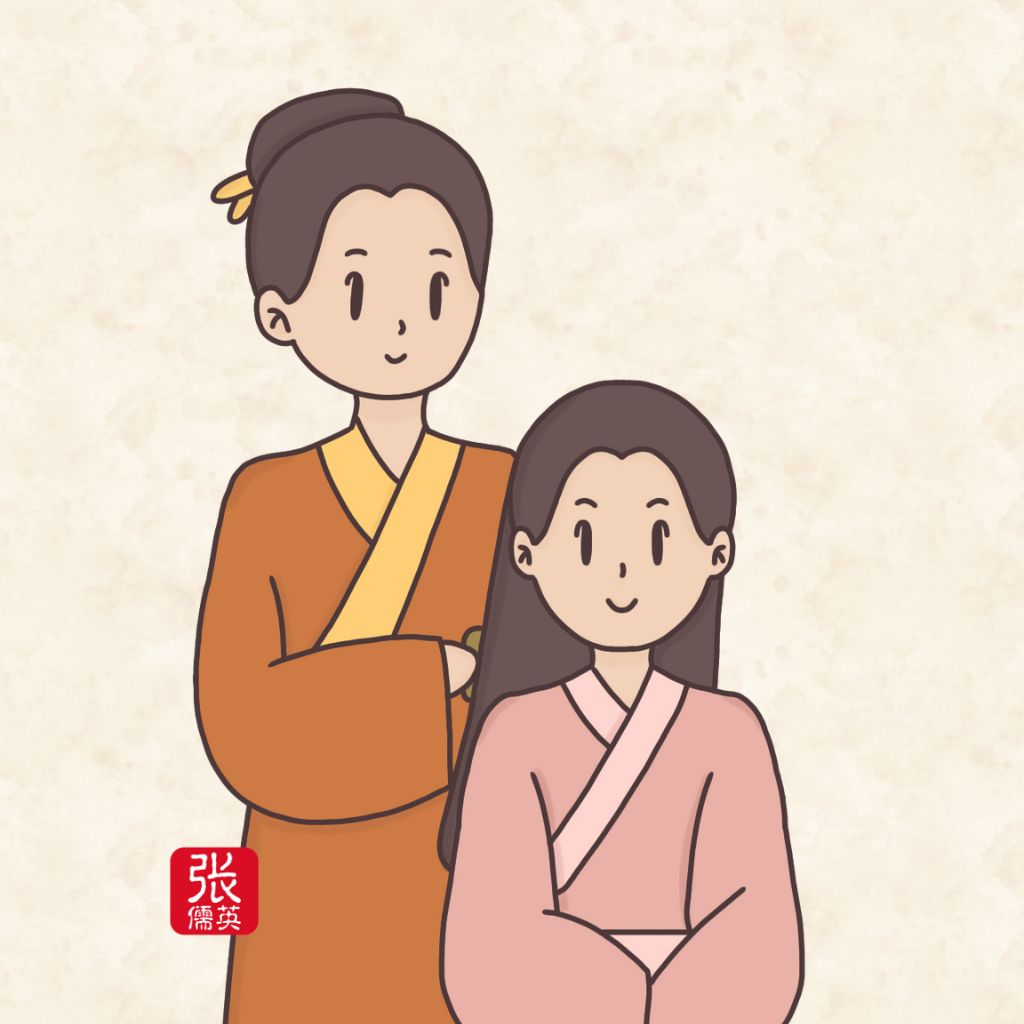Guan Li 冠礼 & Ji Li 笄礼: The Ancient Chinese Coming-of-Age Ceremonies of the Han People
Before diving into today’s topic, let’s first get familiar with these two terms:
- Guan Li (冠礼), literally means “Guan ceremony”
Guan (冠 ; guān) means hat or crown
Li (礼; lǐ) means ceremony or ritual - Ji Li (笄礼), literally means “Ji ceremony”
Ji (笄; jī) means hairpin
Li (礼; lǐ) means ceremony or ritual
For simplicity, I’ll use Guan Li and Ji Li throughout this article.
What Are Guan Li and Ji Li?
Guan Li and Ji Li, are important traditions of the Han people in ancient China, a kind of “coming-of-age ceremony” that marked the change of status from child to adult. Different from just a birthday party or sweet seventeen, this ceremony had deep social and moral meanings.
In ancient times, becoming an adult was not only about age or physique, but also about the responsibility of being an official adult in society.
The coming-of-age ceremony, also called Cheng Ding Li (成丁礼 ; chéng dīng lǐ), signified that when a young man or woman reached a certain age, already considered mature biologically, they were allowed to marry, and from that time on, they were recognized as adults in their clan and participated in various activities.
Only by being able to practice virtues such as filial piety (孝 ; xiào), respect (悌 ; tì), loyalty (忠 ; zhōng), and obedience (顺 ; shùn), could one become a worthy child, a worthy sibling, a worthy citizen (in the past, meaning a worthy subordinate), and a worthy junior, and thus a proper member of society.
The Difference Between Guan Li and Ji Li
For males, the coming-of-age ceremony was called Guan Li (冠礼).
For females, it was called Ji Li (笄礼).
Guan Li (冠礼): The Male Coming-of-Age
Guan Li (冠礼 ; guān lǐ) was one of the “ceremonies of happiness (嘉礼 ; jiā lǐ)”. Underage males did not wear the Guan (hat/crown), so the wearing of the Guan became a sign of maturity for a male, meaning he was already allowed to marry and take part in various clan activities.
According to records in the classics, this ceremony had already been practiced since the Zhou dynasty. Based on Zhou regulations, males underwent Guan Li at the age of 20. However, emperors and nobles sometimes did it earlier so that they could soon manage governance. It is said that King Wen of Zhou (周文王 ; Zhōuwén wáng) wore the Guan at the age of 12, while King Cheng (成王 ; Chéng wáng) wore it at the age of 15.
In ancient times, Guan Li was held in the ancestral temple, usually in the second month. Ten days before the day of the ceremony, the participant first had to divine a good day (卜筮吉日 ; bǔ shì jí rì). If, within ten days, no good day was found, then another good day was chosen within the next ten days, and then the chosen day was announced to relatives and friends.
Three days before Guan Li, another divination was performed to choose the “great guest (大宾 ; dà bīn)” who would lead the ceremony, as well as a “Guan assistant (赞冠 ; zàn guān)” to help the ceremony proceed. On the day of the ceremony, the host (usually the participant’s father), the great guest, and the participant all wore ritual clothing. First, the Zibu Guan (缁布冠 ; zī bù guān) was worn, then the Pi Bian (皮弁 ; pí biàn), and finally the Jue Bian (爵弁 ; jué biàn). Each time a hat was put on, the great guest recited a blessing prayer (祝辞 ; zhù cí).
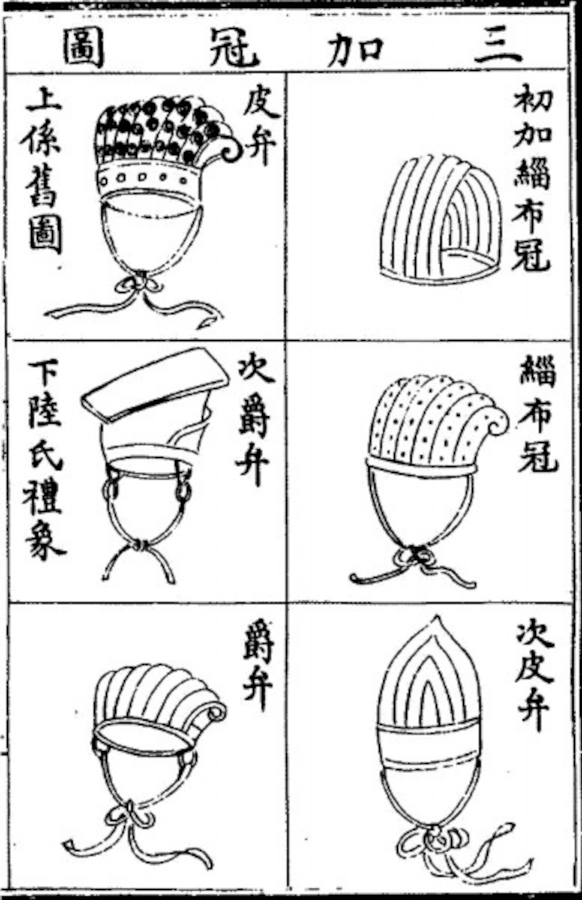
After that, the Guan Li participant paid respect to his mother. Then, the great guest gave him a courtesy name (字 ; zì). During the Zhou dynasty, this name was usually in the form “Bo Moufu” (伯某甫 ; bó mǒu fǔ), where Bo (伯 ; bó), Zhong (仲 ; zhòng), Shu (叔 ; shū), Ji (季 ; jì) were determined according to birth order.
Afterward, the host escorted the great guest to the temple gate, offered him drinks, and presented gifts in the form of five rolls of silk fabric and two pieces of deerskin, as well as animal meat as a reward. The Guan Li participant then changed into ritual clothing and paid respects to the ruler, bringing offering gifts to greet the village officials.
If the father had already passed away, the Guan Li participant had to offer a ritual to his father’s spirit tablet, showing that Guan Li was performed before his father. After the offering, he greeted his uncles, and then a banquet was held.
The ceremony of wearing the Guan, receiving a courtesy name, as well as paying respects to the ruler and elders, later varied depending on time and region.
Ji Li (笄礼): The Female Coming-of-Age
For girls, the parallel ceremony was Ji Li (笄礼 ; jī lǐ), also counted among the Jia Li (嘉礼 ; jiā lǐ). It was often called “Shangtou” (上头 ; shàng tou) or “Shangtou Li” (上头礼 ; shàng tou lǐ). Ji (笄 ; jī) means hairpin. Usually performed at the age of 15, but if not yet betrothed by the age of 20, then the ceremony was still carried out.
As the coming-of-age ceremony for females, Ji Li held the same status as Guan Li (冠礼) for males, namely marking that one had already become an adult. In Ji Li, the girl in question would change her childhood hairstyle; her hair would be coiled into a bun, then wrapped with black cloth, and then a hairpin would be inserted to fasten the bun.
The main executors of Ji Li were the girl’s parents, while female guests invited would help insert the hairpin, which signified that the girl had become an adult and was already allowed to marry.
Usually, after Ji Li, aristocratic girls had to receive adult education in the palace or in noble families, being taught about women’s virtues (妇德 ; fù dé), women’s appearance (妇容 ; fù róng), women’s skills (妇功 ; fù gōng), and women’s speech (妇言 ; fù yán). All of these were regarded as the qualities, manners, and household skills a woman must possess (as a daughter-in-law after marriage), including etiquette in interactions and the ability to sew, weave, and do handicraft work.
In later times, this ceremony changed into the delivery of admonitions by the girl’s mother, teaching ethics and manners, which was called Jiao Cha (教茶 ; jiào chá).
A girl who reached the age of fifteen was called “Ji Ji (及笄 ; jí jī),” meaning she had reached the age of Ji Li.
It should be noted that, compared with the coming-of-age ceremonies, whether Guan Li (冠礼) or Ji Li (笄礼) of the royal/noble descendants, the coming-of-age ceremonies for common people were much simpler.

